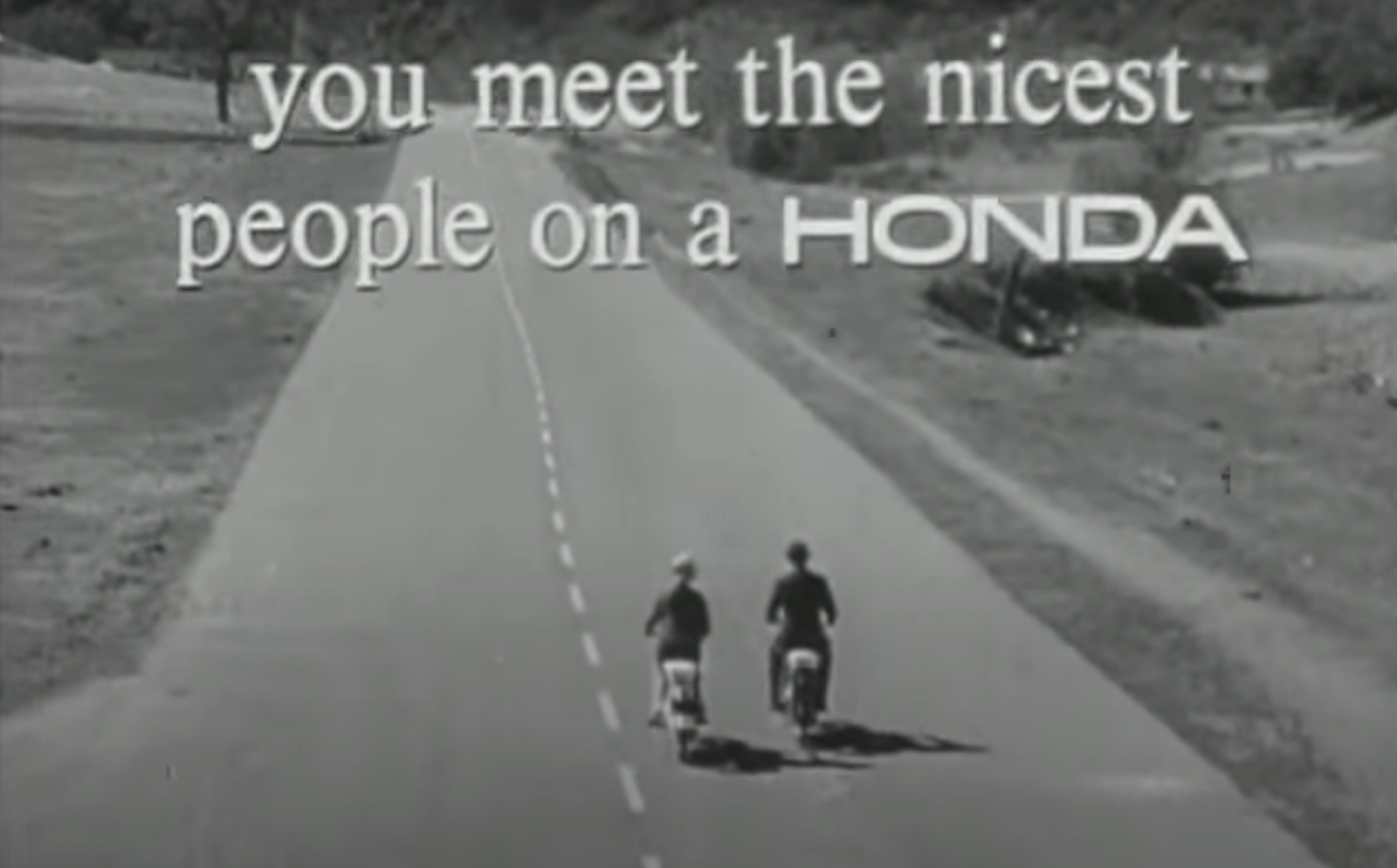How astronaut Tim Peake rides for adventure on Earth after walking in space
Major Tim Peake, the first British man to walk in space, explains why riding two-wheels on Earth satisifies the curiosity that led him to outer space

Every one of us has a sense of adventure. A curiosity for the unchartered, an experience you’re yet to discover.
It’s what encourages us to climb that tree as kids (and potentially bear the scars), it’s the ambition to travel further and wider, whether it’s hiking in the Himalayas or simply going to a different pub on a Friday night.
It’s also what entices many to discover transport can be relished on two wheels, as well as four… after all, there is literally an entire segment dedicated to ‘Adventure’ motorcycles.
In short, adventure comes in myriad forms depending on how you sense it out. For the most part, each adventure is available to every one of us on this Earth, even if we invariably experience it in different ways. Then again, (very) few can say their adventures have taken them beyond Earth and into the vast expanse that is outer space.
Even fewer can say they’ve taken a stroll in space itself and only one of these has done so looking back home at the United Kingdom - and the entire planet - in its entirety. Indeed, Major Tim Peake is an out-of-this-world explorer - quite literally - having become the first British person to visit the International Space Station and conduct a spacewalk during a six month mission in 2015-2016.
![Tim Peake Spacewalk Selfie [credit: ESA, Tim Peake]](https://cdn.visordown.com/Tim_s_spacewalk_selfie_pillars.jpg?width=1600)
His repertoire back on planet Earth is similarly exceptional. He attended the Royal Military Academy, served during the Bosnian War, is an Apache pilot, a best-selling author and - perhaps most daunting of all for many of us - he stands in front of large audiences as a motivational keynote speaker. If adventure is in Tim Peake’s blood, it’s been richly nourished.
“I love learning new things, I like being a novice,” Tim tells me after I ask him where his intrepid nature takes him within this stratosphere. “I love the outdoors, I love going off-road and I love the sense of exploration, getting on the Tiger and having some adventures.”
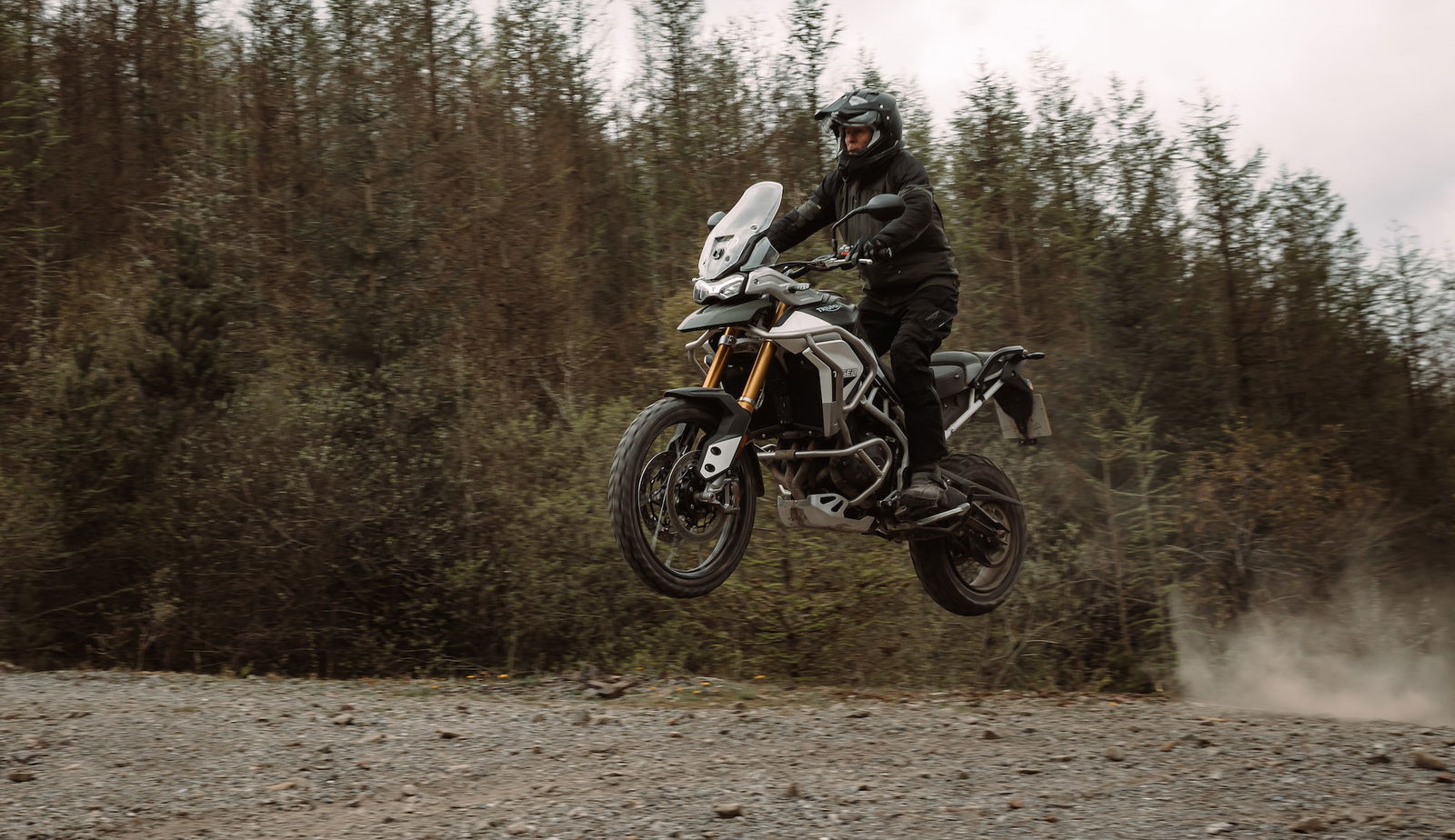
One giant leap… over a five-foot gap
You might be pondering how a bonafide, real-life astronaut has come to be speaking to me - a motorcycle journalist - for this feature on Visordown, a motorcycling website, but it was the most fortunate wrong number I have ever dialled… I jest.
In fact, Tim has recently been getting his boots (motorcycle, not space) muddy on a Triumph Tiger 900 Rally Pro after hitting the trails of Wales at the Triumph Adventure Experience. It was an opportunity to enjoy something new on solid (well, loose…) ground, while at the same time satisfying that lust for learning.
“I think as astronauts, actually, you do get used to doing what you’re told so much. So much of our life is walking to a lesson or there’s an instructor there, ‘sit down, you’ve got thirty minutes’. You’ve got to learn it quickly, and then you’ve got to get on to the next lesson.
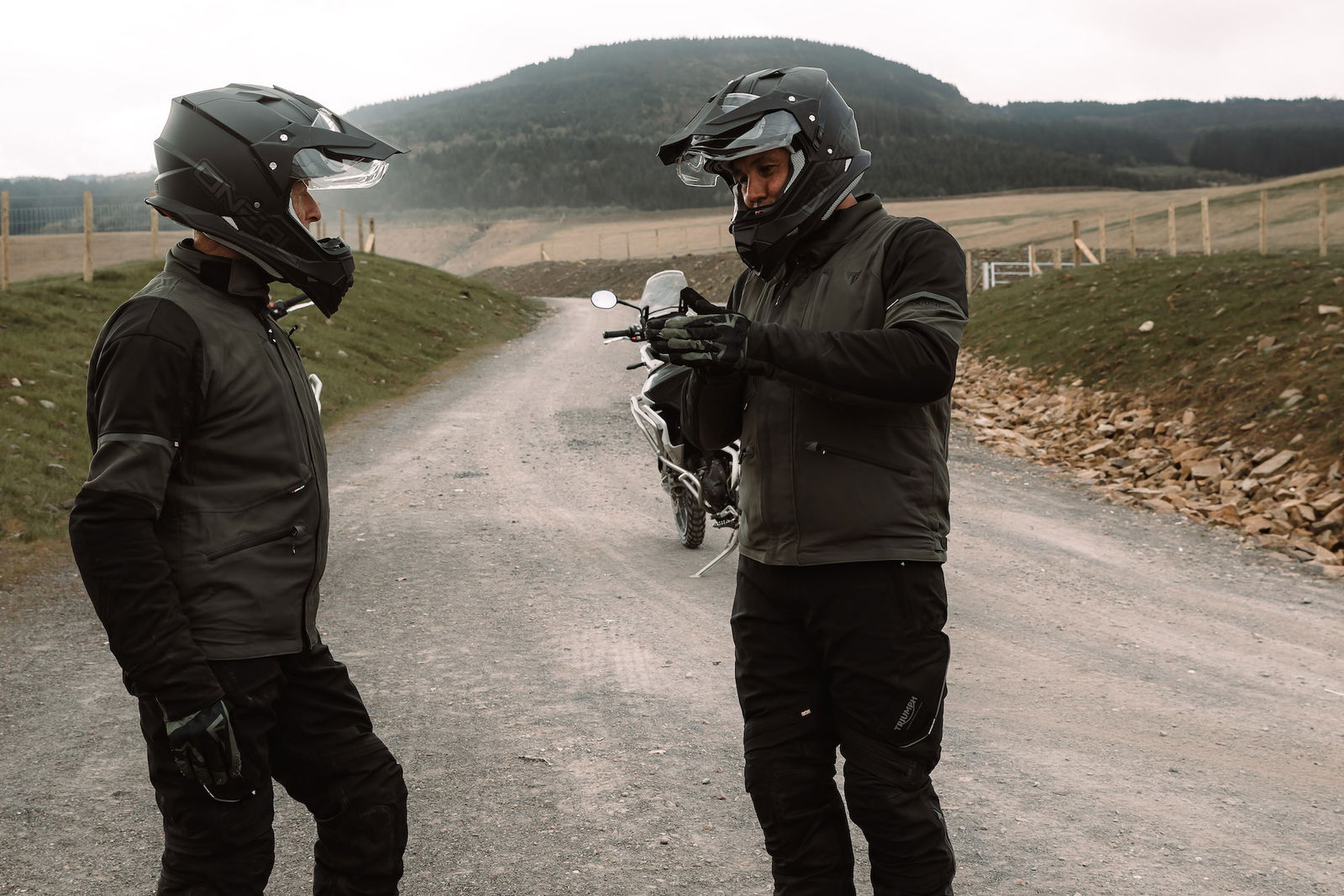
“I was being told to do stuff [by World Enduro Champion and Triumph Adventure instructor Matt Reed] and it was only afterwards when we were having the coffee break that he would kind of say, “Do you know what? I wouldn’t normally tell people to go and jump a five-foot gap on their first day on a Tiger 900, but you seem up for it.”
“I said, it wasn’t a case of being up for it, I’m just following your instructions. I find it’s mostly about confidence. If you think you can do something, you’ll get on and do it. If you think you’re going to fail, then you will. You’ve got to have the right mindset for it.”
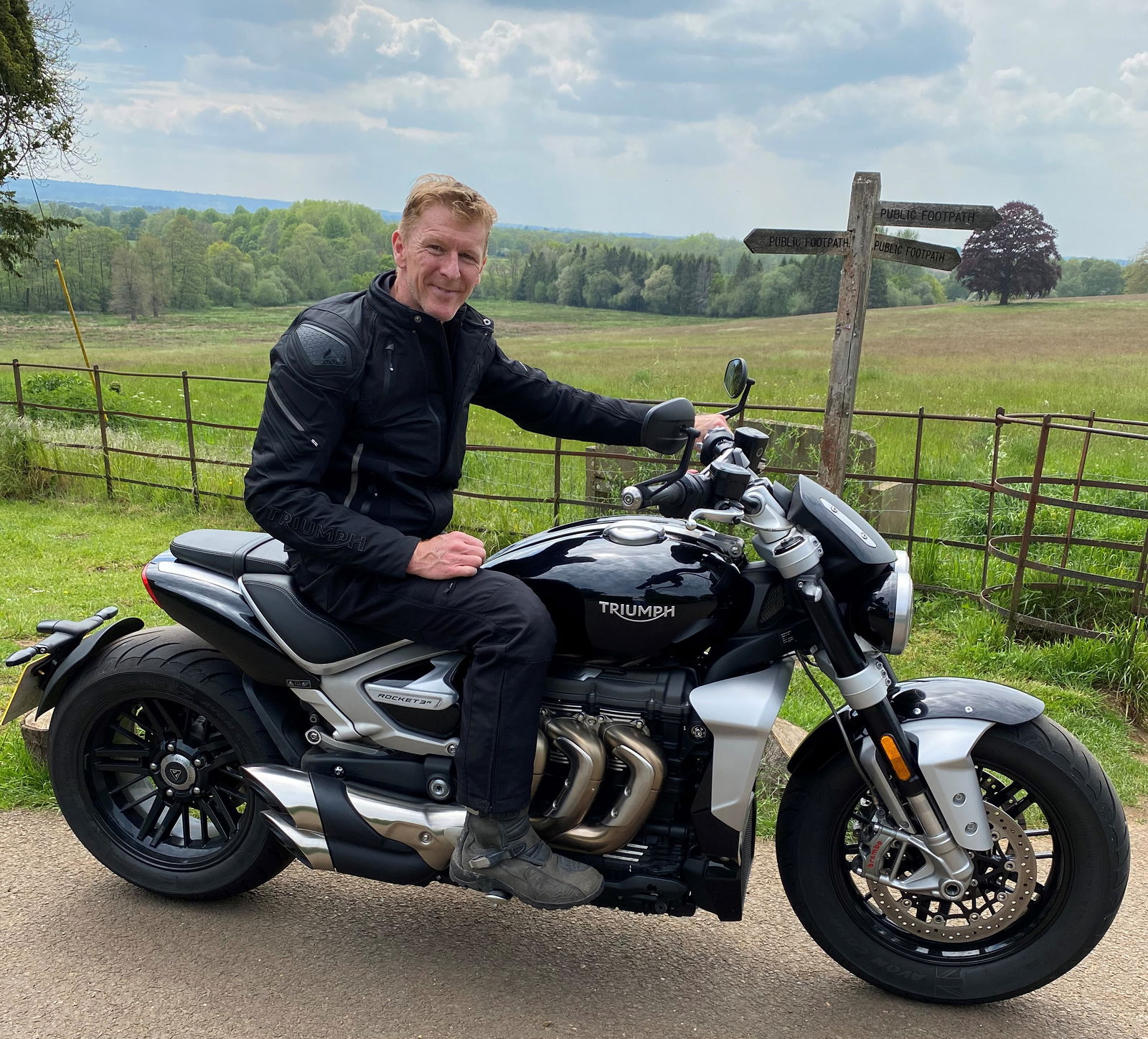
Rocket science or Rocket 3?
It’s a mindset that has gotten him to where he is today. At 49-years old, it’s fair to say Tim boasts a skillset to really boast about, even though from this mind boggling list of credits he identifies having to learn the Russian language for his space mission as being the toughest: “I would sometimes come back from a lesson thinking, oh God!” Net, spasibo!
Riding motorcycles was less of a mental hurdle for him after taking it up in his twenties and being gifted a Honda CBR600 by his girlfriend (now wife) Rebecca to enjoy while she completed her Tour of Duty in Bosnia.
It’s a pastime he has resumed in more recent years so as to enjoy the smaller pleasures after something so vast, a pursuit emboldened by his curiosity and passion for all things science, engineering and technology that has led him to become an ambassador for STEM Education (Science, Technological, Education, Mathematics).

“Having come back from space, I really wanted to pick up biking again. I’m passionate about all things science, technology and engineering and I also love promoting great British brands. I think we’ve done amazing things in the UK, and it’s important that we kind of showcase what we’re doing and the great industries that we do have.
“So, Triumph was a really natural fit in terms of me being passionate about bikes and being a great British brand. I think that their ethos is about, you can see the passion and quality they put into their bikes.”
“There’s not many places in the UK where you can go and enjoy that sense of manufacturing and engineering. I’m really passionate about getting young kids and students involved in it as well. I think that the more that they can go and see how things are built, how things are engineered, how things are designed, and get to a factory floor and experience this, it’s great.”
It is an association that has led to Tim getting his hands on several Triumph models over the year, prompting me to question whether a ‘Rocketman’ gets his day-to-day thrust from that torquiest of motorcycles, the Triumph Rocket 3, the machine perhaps most likely to imitate that skin-stretching feeling of a launch sequence (without needing to be fluent in Russian).
“I was really quite nervous about riding the Rocket 3, because I had seen it in the factory and thought, ‘that is a massive bike’. But, I was amazed how easy it was to ride. It was a dream to ride. It really was. Lovely.”
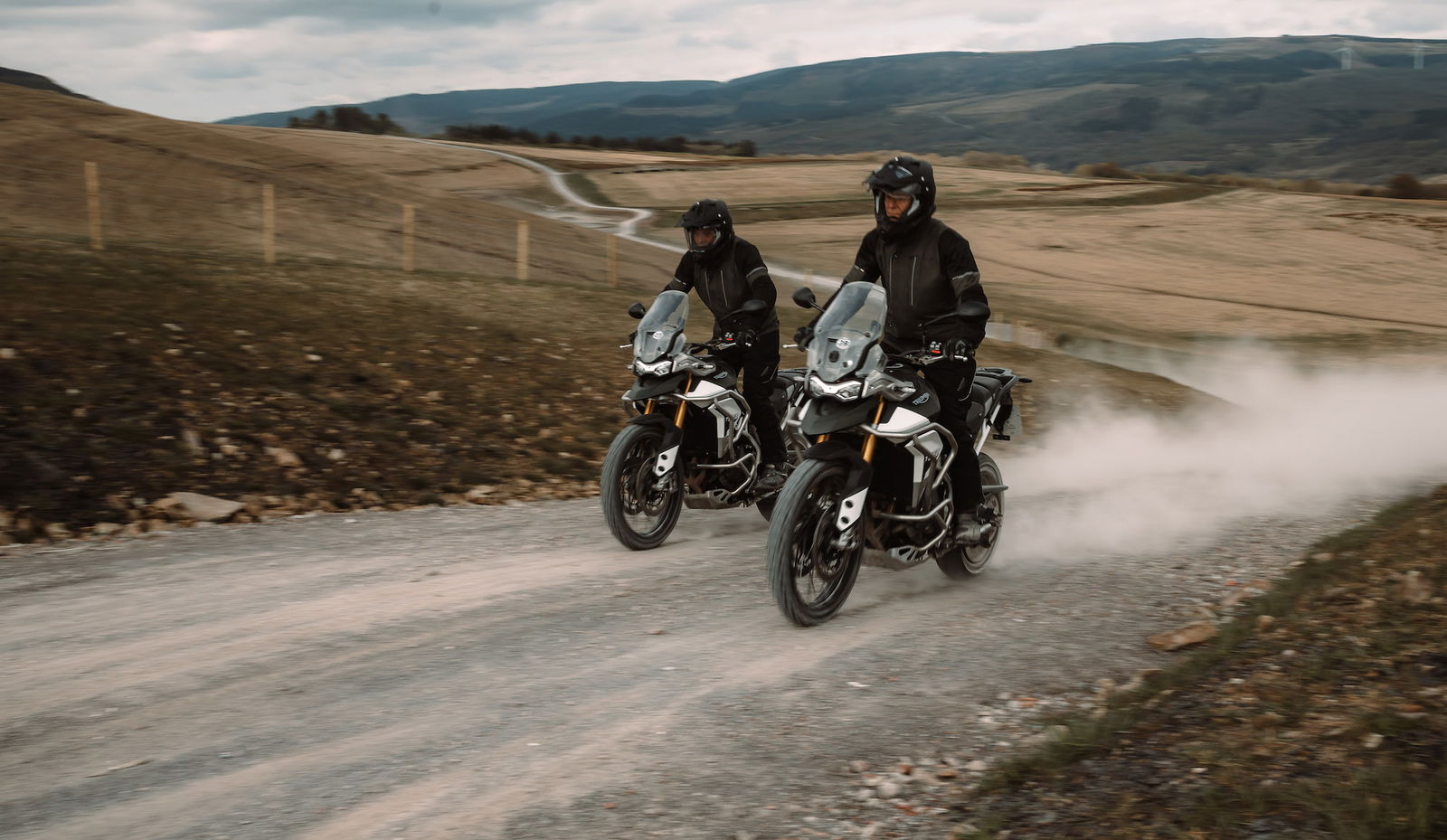
An out of this world Bucket List
In fact, adrenaline-fuelled anticipation (and nerves) teetering during a countdown is something Tim hasn’t just experienced when climbing towards the stars. He was invited by Triumph to participate in the famed Goodwood Festival of Speed hill climb aboard a Triumph Daytona 765 Moto2, an experience he describes as a huge honour and a buzz, albeit one he admits to being anxious about on the startline.
“For me, that’s a once-in-a-lifetime event to do something like that. Goodwood has always been my local patch growing up, and still going to school there. So, I’ve been to Goodwood festivals over the years, but I’ve never actually been involved in one like that.
“You’ve got the whole crowd, people watching you, you’ve got the buzz, the excitement, the adrenaline, but it was quite nerve-racking!
“All I was thinking not to do was to come off the bike. It first thing in the morning and all the cars go ahead of you bringing water and mud onto the track, and then the bikes go last when it’s all nice and slippery, but it was great.”
While leaping a five-foot gap on a Tiger 900 isn’t quite akin to the proverbial giant leap for mankind or Tim’s own leap of faith (and science) as he stepped out for his spacewalk - he later tells me he found the extraordinary experience ‘strange yet serene and natural’ - motorcycling has become part of a new routine that no longer demands persistent complex learning, literally rocket science, punishingly intensive physical training and an astonishing eight chest x-rays a day.
Today Tim is working to immerse audiences in the majesty of the outer world via his unique perspective of it through his My Journey to Space UK Tour (CLICK HERE for more information), while he is an ambassador STEM (Science, Technology, Engineering and Mathematics) in an effort to encourage youngsters to pursue a path of engineering.
As one of the last surviving independent British automotive/motorcycling manufacturers still operating (and growing), Triumph embodies a similar homegrown pride and success Tim is particularly passionate about publicising.
“In the military it was very much more operational,” he continues when asked if has enjoyed the transition from star pupil to a Professor of the stars.
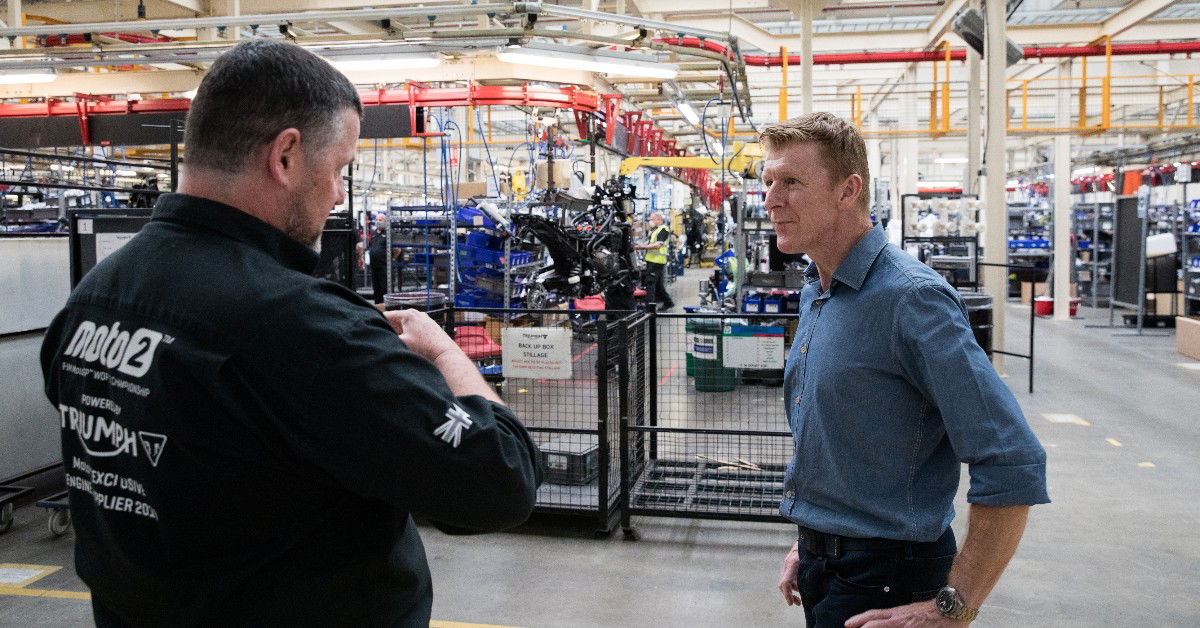
“I guess what the years of being a test and army pilot taught me self-awareness, about thinking about what you’re doing and why you’re doing it and what went wrong and why it went wrong, and then applying lessons learned.
“So, I think that whole mindset has been really useful to now turning it into teaching. I like to be pushing boundaries and limits, but I’ve really enjoyed, more so than I ever thought, just sharing that with people, especially with young kids.
“When I was growing up, I was really fortunate. I got into the cadet force at school, and that was it. It only took one thing. I think for lots of young people, it does just take one thing, whatever your bag is – whether it’s drama, music, arts, science, or outdoor activities.
“I think it’s important to try and give back. So, I love working with the Prince’s Trust, with the scouts [he is an ambassador for both] and speaking to young people, giving them the self-belief, to get out there try stuff, and to give them opportunities as well. I think that’s all you can really hope for is to give people the best opportunities.”
How Tim Peake found community in motorcycling
Living for six months within the close confines of eight other cosmonauts inside the ISS naturally demands a sense of camaraderie, in part because your life could depend on it but also because space stations are fairly cosy even before you consider gravity isn’t standard all-inclusive.
It’s a spirit though that extends to getting out on two wheels, Tim having found a sense of community in motorcycling, even if you certainly don’t want to be replicating that zero gravity feeling when out riding.
“There’s no snobbery amongst more experienced riders,” he celebrates. “Everyone is just there to help you, give you advice, and to make sure that you enjoy yourself as much as you can.
“I’ve always found that, when you’re out biking, people are really sociable, really friendly. They’re interested in what you’re riding, where you’ve been, good places to go and visit. The crack is just fantastic.
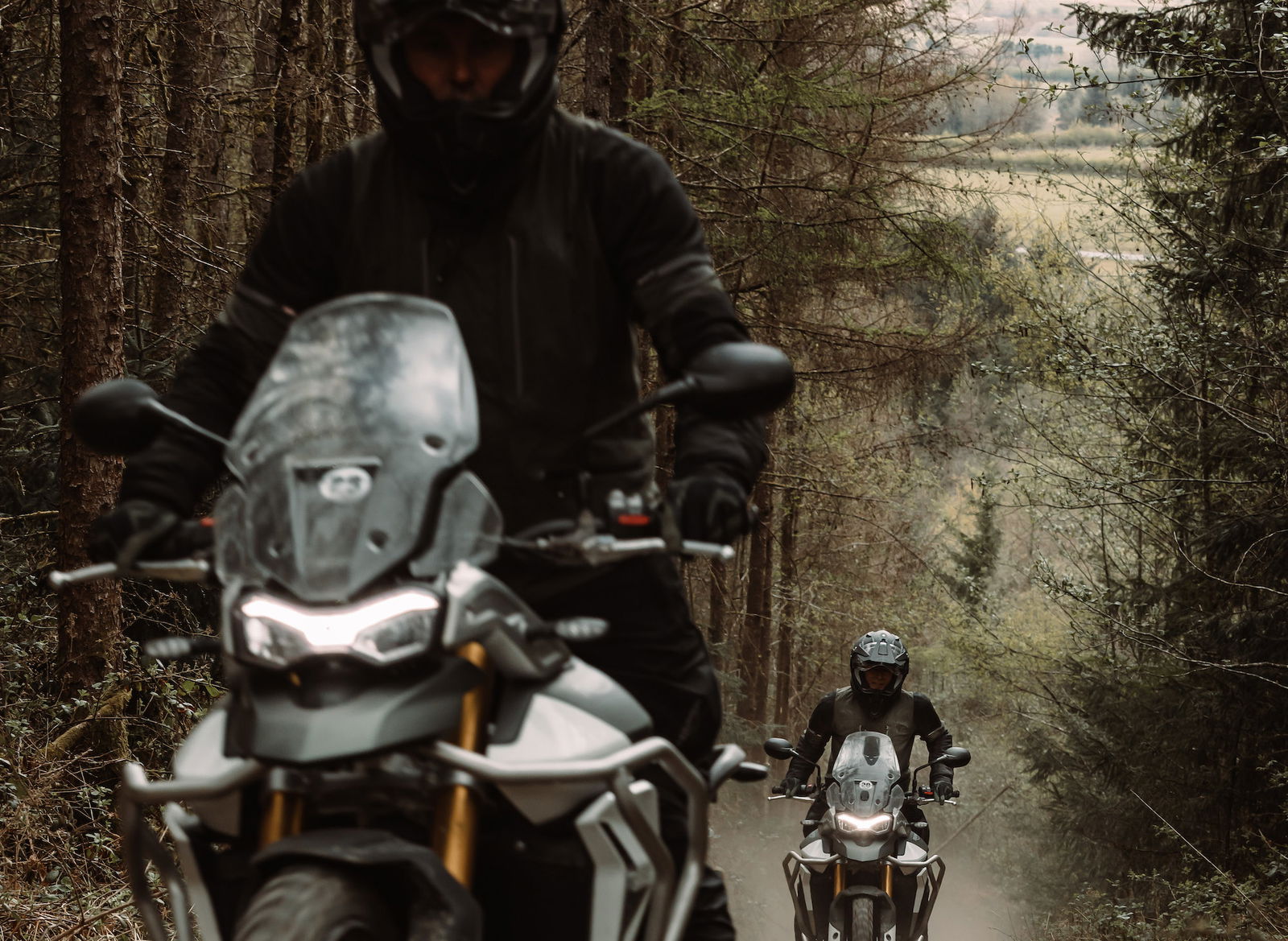
“I’ve got some Army friends of mine. We all try and bike together every now and again. I’ve actually seen more of some of my Army mates this year than I have in the last twenty years, which has been brilliant.
“It does feel a little bit selfish as well, when you’re taking yourself away at the weekends, time away from family, but that’s nice if you can get out in the week and have a ride.”
Indeed, while it was complex and innovative technology that blasted him from solid ground to outer space, it is his perspective of being so far from his natural habitat whilst viewing it in its entirety with his own eyes that has instilled such a connection with nature that it emphasises the importance of disconnecting from technology too.
“I do like to get away from phones and email, internet, social media, all the rest of it. Definitely. I think it’s important to switch off. It’s important to connect with nature, to get out and to explore and to connect with a less stressful way of life.
“I think we’re slowly getting into a faster and faster-paced life, a more stressful-paced life. You’ve got to take those moments where you just step back.”
It’s a good point, well made. Triumph’s own slogan is ‘For The Ride’... regardless of whether you’re an astronaut or an accountant, Tim’s words below especially are a perspective-shifting reminder for all bikers to not simply enjoy the ride, but enjoy the views too.
After all, it isn’t rocket science…
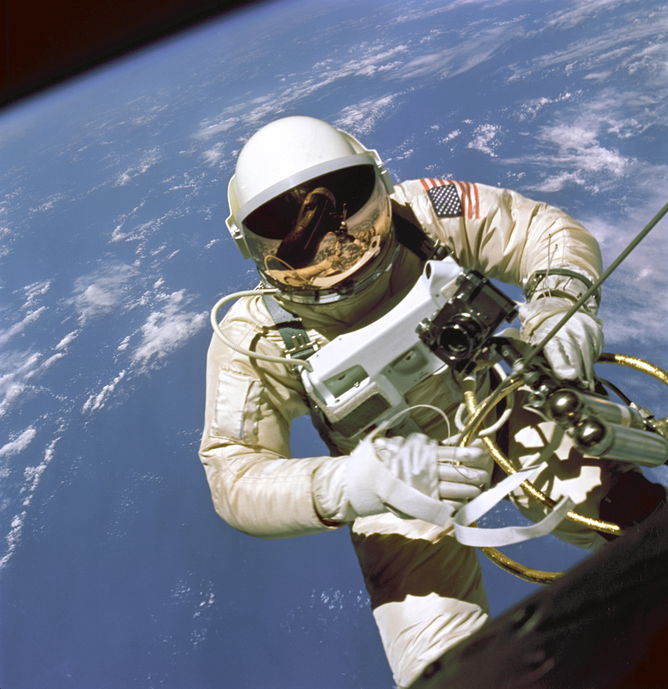
To conclude this feature, below is Tim Peake’s full answer to my question: Describe the emotion of completing your spacewalk while gazing down at the planet Earth as a single human against the backdrop of the entire universe…
“When I was speaking to one of the Apollo astronauts who had done a spacewalk, Al Worden, and he had done a spacewalk in-between the Moon and Mars, one of the most remote places you can possibly come out.
“He said, he thinks he’s still processing it, really, in terms of trying to make sense of it all. I think that’s how it is. It is a very hard thing to process. It gives you a sense of perspective initially. You see the earth against the vast backdrop of space and you realise, “Wow, that’s our planet.
“There’s Mars, Jupiter, and this is where we are, in this Solar System in the galaxy in the universe. So, it’s a bit like getting away from it, when you go on a vacation. You get away from everything and you get a fresh perspective. It’s the ultimate fresh perspective, really. In terms of our place in the universe,
“I think it also teaches you that we are just part of the universe. I think it comes back to my point about connecting with nature and remembering who we are and what we are. If you take that all the way back, we’re just parts of the universe that have rearranged themselves into complex, conscious life.
“But when you’re out there floating in space, it doesn’t feel like you’re an imposter. It’s quite strange, It feels very serene and it feels very natural.
“It’s a really beautiful experience to be floating, despite the fact that you’d think your mind would be in overdrive, that it would feel crazy and you shouldn’t be there. It’s quite the opposite.
"I think that’s why it kind of struck me and I thought, well, yeah, this is the most natural thing for us to do. We are part of the universe, and we now have a conscious universe looking back on itself and that’s a really weird thing to think.
“I think personally if we didn’t have life in the universe, then there’s no meaning to the universe. It would exist, but there would be nothing there to appreciate it or think about it.
“We are one of those species, maybe there are more, but we’re certainly one of the species that actually pondered who we are and where we’ve come from…”

